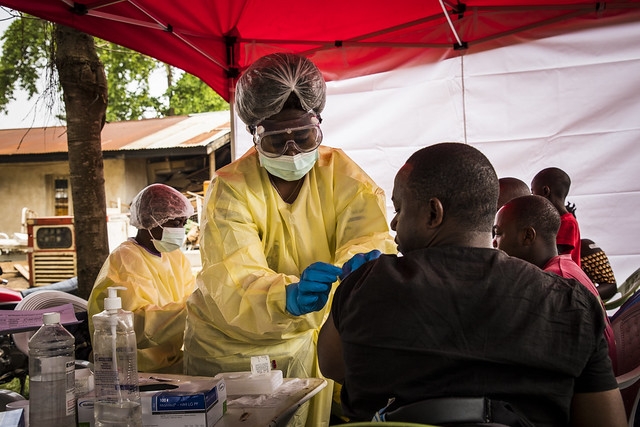WHO declares Ebola outbreak in DRC a Public Health Emergency

On Wednesday July 17th, the World Health Organization (WHO) officially declared the second worst Ebola outbreak of all time, in the Democratic Republic of the Congo (DRC), as a Public Health Emergency of International Concern. Up until now, there have been more than 2,500 cases of infection, and about 1,670 people have died in the provinces of Ituri and North Kivu, where the existence of multiple armed groups and a lack of local trust have hindered efforts to control the outbreak. This declaration comes in after UN relief chief Mark Lowcock, said on Monday that the outbreak would not be properly contained and reach the goal of zero cases without a
“big scale-up in the response.”
According to WHO’s International Health Regulations, a Public Health Emergency of International Concern (PHEIC) is defined as,
“an extraordinary event which is determined to constitute a public health risk to other States through the international spread of disease and to potentially require a coordinated international response”.
The Committee in making its official announcement referenced new developments in the outbreak, including the first confirmed case in Goma, a city of almost two million people that borders Rwanda, which provides easy access to the rest of the DRC and the world. Moreover, the Committee announced specific assessments and advice to the affected countries, their neighbors, and for all countries in regards to best practices and practices to avoid to handle the outbreak in the most efficient way. Experts in the committee said it was
“essential to avoid the punitive economic consequences of travel and trade restrictions, on affected communities.”
As chair of the Committee, Professor Robert Steffen, explains, this is because misinterpreting the declaration as justification to impose trade or travel restrictions on the people most affected by the outbreak,
“would have a negative impact on the response and on the lives and livelihoods of people in the region.”
In its statement, the Committee also expressed its disappointment that response to the outbreak has been forcibly hindered because recently there have been delays in obtaining international funds to combat the relentless disease. To counter this, WHO chief Tedros Adhanom Ghebreyesus, calls for the various branches of response, WHO, Government, partners, and communities to assist the responders that have been trying to contain the outbreaks for a year now and
“shoulder more of the burden.”















